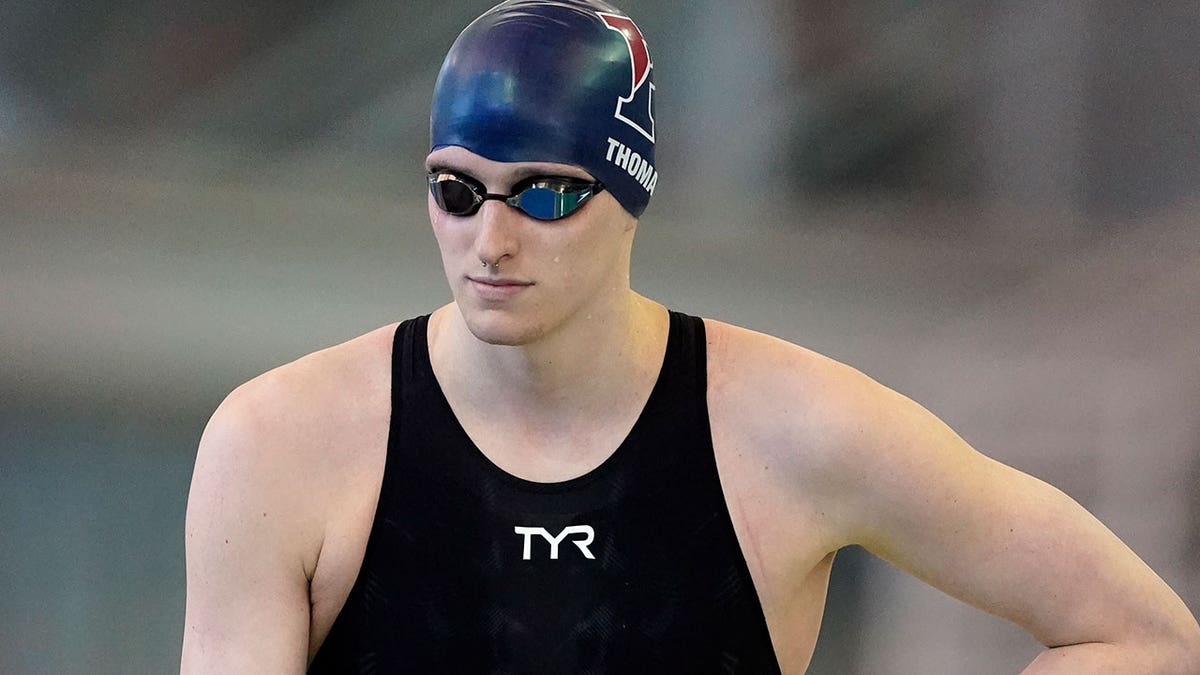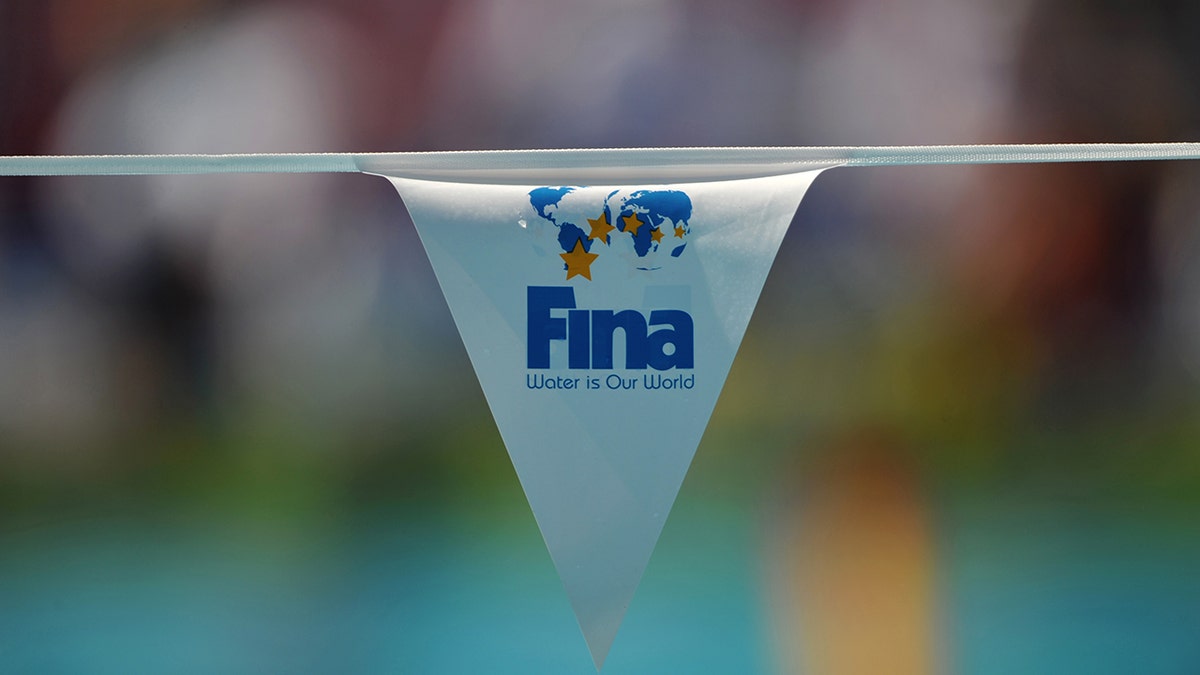Fox News Flash top headlines for June 19
Fox News Flash top headlines are here. Check out what's clicking on Foxnews.com.
A top FINA medical official said Monday that the international governing body for elite swimming’s new policy on transgender athletes was the "best outcome" for the future of the sport.
The "gender inclusion policy" will only permit swimmers who transitioned before the age of 12 to compete in women’s events. FINA members voted 71.5% in favor of the new policies with the possibility of the organization creating an "open category" on the table. The new rules went into effect for competitions beginning Monday.
CLICK HERE FOR MORE SPORTS COVERAGE ON FOXNEWS.COM

Pennsylvania's Lia Thomas prepares to swim the women's 500-yard freestyle final at the NCAA swimming and diving championships (AP Photo/John Bazemore)
"To my mind, FINA’s approach to this was very enlightened, it was very balanced, it was informed," David Gerrard, the vice chairman of FINA’s Sports Medicine Committee, told Reuters. "It recognized the athlete’s voice, the scientific, objective evidence and the somewhat more subjective, human rights (and) legal issues which were argued very forcefully by the lawyers present.
"I hope that that model is something that's considered by other sports."
Gerrard, a former New Zealand Olympian, added fairness in the sport was a main issue FINA was trying to confront and predicted it will still be an issue.
"It is an issue that we’re going to have to confront, and the debate is going to continue," he said. "But when it comes to fairness and when it comes to safety, you’ve got to draw a line in the sand."
In the 24-page policy released Sunday, FINA spelled out how transgender men and women will be allowed to compete under the new rules.

University of Pennsylvania swimmer Lia Thomas swims in the 500 Freestyle finals during the NCAA Swimming and Diving Championships on March 17th, 2022 at the McAuley Aquatic Center in Atlanta Georgia. (Rich von Biberstein/Icon Sportswire via Getty Images)
FINA said transgender men are eligible to compete in FINA competitions and set world records in the men’s category unless:
FINA APPROVES 'GENDER INCLUSION POLICY' FOR TRANSGENDER SWIMMERS
"For the disciplines of Water Polo and High Diving, the athlete must provide to FINA an assumption of risk form signed and dated by the athlete or if the athlete is a minor, by their legal proxy" or "All athletes who are undergoing treatment involving testosterone or other anabolic substances as part of female-to-male genderaffirming hormone treatment are required to obtain a Therapeutic Use Exemption (TUE) for that treatment in accordance with the FINA Doping Control Rules."
Transgender women and athletes whose legal gender and/or gender identity is female can compete in FINA-sanctioned events if "they can establish to FINA’s comfortable satisfaction that they have not experienced any part of male puberty beyond Tanner Stage 2 or before age 12, whichever is later."
The athlete must produce evidence they have "complete androgen insensitivity and therefore could not experience male puberty" or "They are androgen sensitive but had male puberty suppressed beginning at Tanner Stage 2 or before age 12, whichever is later, and they have since continuously maintained their testosterone levels in serum (or plasma) below 2.5 nmol/L" or "An unintentional deviation from the below 2.5 nmol/L requirement may result in retrospective disqualification of results and/or a prospective period of ineligibility or "An intentional deviation from the below 2.5 nmol/L requirement may result in retrospective disqualification of results and a prospective period of ineligibility equal or commensurate in length to periods imposed under the FINA DRC for intentional anti-doping rule violations involving anabolic steroids."

The logo of the Swimming governing body FINA is displayed on a flag at the main swimming pool on July 26, 2009 at the 13th FINA World Swimming Championships in Rome. (MARTIN BUREAU/AFP via Getty Images)
A transgender athlete who does not meet the eligibility standards may compete in "any open events" the organization could develop in the future.
Lia Thomas’ sudden emergence in the pool during the NCAA swimming season shined the spotlight on the new rules. Thomas became the first transgender swimmer to pick up wins in the NCAA and the Ivy League Championships over the last few months. She swam for the University of Pennsylvania.
CLICK HERE TO GET THE FOX NEWS APP
Thomas told Sports Illustrated last month she would seek a spot on the national swimming team ahead of the 2024 Olympics.


